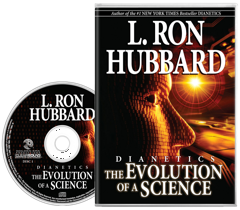Some Known Incorrect Statements About Dianetics
Wiki Article
What Does Dianetics Mean?
Table of ContentsThe Best Strategy To Use For DianeticsAbout DianeticsNot known Details About Dianetics Top Guidelines Of Dianetics
I couldn't ever before not desire to obtain anything that enters your mind for you- if it was otherwise, I wouldn't be resting here with you, doing this. I not only might never have a trouble, or otherwise want to hear something that enters your mind for you, yet I'm entirely excited to recognize every concept, every idea, every picture or feeling that arises or shows up for you- do not ever believe otherwise, and if somehow you do, please just allow me know! In some cases, you may have a thought, and image, concept or incident turn up that does not appear to address the concern, or associate with it, however nevertheless, constantly do inform me concerning it, and as we proceed, the significance will certainly arise for you.This is integral in the basis of processing, and the topic of this conversation: the fundamental roles of the counselor and the customer: The standard duty of the counselor is, as opposed to "conventional training", not to control, which indicates to implement and/or hinder, however to instead work from the basis of EMPOWERING THE CLIENT.

Dianetics - The Facts
John Mcmasters shared this basic truth wonderfully well in among his talks on Power handling, wherein he clarifies just how he was asked what this "unique flair" was that he had for giving such excellent sessions; he needed to consider that for a minute, and detected that it was what he had not been doing, as well as what he was doing: he had not been reviewing, evaluating, computer, or in reality, creating any kind of ideas, let alone verbal expressions, after providing the command and while waiting for the PC to complete their response to their fulfillment; he was, just and only, being present with the PC, and completely interested.The function of the counselor, showed; that was his "special propensity". I have had go to these guys my own experience which instructed me this well, really at an early stage in the game. In 1982, having recently finished my training and internship on New Period Dianetics, I was running this on a PC, and there was a point in the session where (being a little bit wet behind the ears not yet having several hours under my belt as an expert auditor) the computer appeared to be "taking too lengthy" to share anything a fantastic read verbally after I provided him a command.
This key turned out to be the most useful payment that John ever made to the topic of treatment or bookkeeping (Dianetics). In my humble viewpoint, it is the best contribution that any person has ever before made to these subjectsthe application is entirely non-judgemental, non-evaluative, and empty of any type of recommendation, suggestions or opinion.no preconceived agenda for people, or 'degrees' that they must do
In Idenics, the only resource of information concerning a client is the individual customer. In Scientology we prided ourselves on not examining for people. All that truly indicated was that the auditor did not Vocally examine for the Computer in session. The registrars and principles police officers reviewed for the computer.
Our Dianetics Diaries

Any person who had actually ever seen John audit might not help however observe a special quality in his auditing."The client's fundamental role is to be there with the function of relocating the direction of their spiritual goals, and to openly and fully express and experience whatever shows up for them in answering the concerns and executing the instructions in the handling.
This is something to procedure as needed. Yet also, people often have previous experience and/or brainwashing in auditing/processing which, in some ways, and to some extent, anonymous actually misdirects them into perspectives, ideas and habits patterns that protect against the full awareness of these functions, therefore they will have a tendency to hinder the expressing of what enters your mind, as in the instances provided above. * The very first, and maybe primary instances of mis-indoctrination bring about much less than entirely smooth and reliable sessions, can be found in certain aspects of the training routines, or "TR's":"TR's" are frequently a person's first, or at the very least early, experience in Scientology, and while I will go on to discuss what I see as the flaws in concept and technique, however, have a tendency to be considerably restorative, done as they are provided (Hubbard urges that "TR's are not refining, they are training", but factually, they are both handling AND training)
There is no "failing", and no rejection of the fact of this being handling. The emphasis, as it should be, is on experiencing the various other individual's visibility.
Get This Report about Dianetics

Report this wiki page